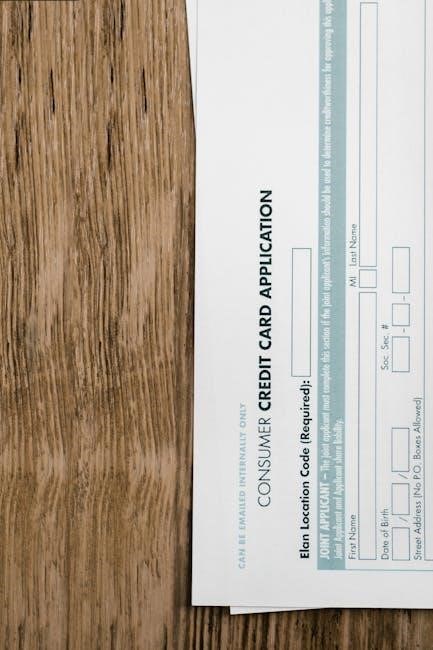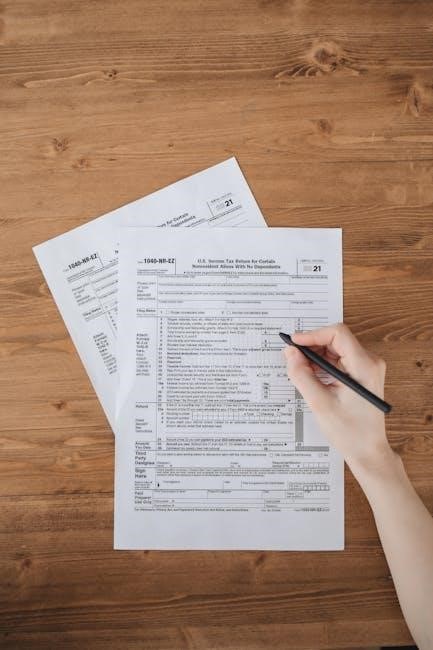The special hardship order application form F4401 is available online and
Purpose of the Special Hardship Order
The purpose of the special hardship order is to allow a driver with a suspended Queensland provisional or open licence to continue driving under restricted and specific conditions. This order is designed to provide relief to individuals who would suffer extreme hardship if they were unable to drive. The order is typically granted for a specific period of time and is subject to certain conditions, such as restricted driving hours or routes. The purpose of the special hardship order is to balance the need to protect public safety with the need to allow individuals to continue driving for essential purposes. The order is not automatically granted and requires a thorough assessment of the individual’s circumstances. The court will consider various factors, including the individual’s driving record, the reasons for the licence suspension, and the potential impact on their livelihood or family. By granting a special hardship order, the court can help individuals to mitigate the effects of a licence suspension while still maintaining public safety. The order is an important tool for individuals who are facing significant hardship due to a licence suspension.

Obtaining the Application Form F4401
The form F4401 is available from court registry or transport office online
Availability of the Form
The special hardship order application form F4401 is readily available from various sources, including court registries and transport offices.
The form can be obtained in person by visiting the court registry or transport office during business hours.
Alternatively, the form may also be available for download from the official website of the relevant transport department or court.
It is essential to ensure that the correct version of the form is used, as outdated versions may not be accepted.
The form is typically provided free of charge, and applicants can request assistance from court staff or transport officers if needed.
The availability of the form in different formats, such as electronic or hard copy, may vary depending on the location and jurisdiction.
Applicants should check with the relevant authorities to confirm the availability of the form and any specific requirements for submission.
By making the form readily available, the authorities aim to facilitate the application process for individuals seeking a special hardship order.
The form is an essential document that must be completed accurately and thoroughly to support the application.
Overall, the availability of the form is an important aspect of the special hardship order application process.

Completing the Application Form F4401
The application form requires personal and licence details to be filled
Required Information
To complete the application form F4401, certain information is required, including personal details such as name and address, as well as licence details, to ensure the application is processed correctly.
The form will also ask for specific reasons why a special hardship order is being applied for, and what conditions are being sought.
A detailed explanation of the circumstances that have led to the licence suspension must be provided, along with any supporting evidence.
This may include documents such as employment records, medical certificates, or other relevant paperwork.
It is essential that all required information is provided to avoid delays or rejection of the application.
The application form should be filled out carefully and accurately, with all sections completed as required.
Any additional supporting documentation should be attached to the application form, as specified in the instructions.
By providing all the required information, applicants can ensure their application is considered in a timely and efficient manner.

Submitting the Application
Application form F4401 submission involves court registry lodgement with required fees.
Process of Submission
The process of submitting the application form F4401 involves several steps, including lodgement with the court registry and payment of required fees. The application must be lodged with the court that suspended the licence. The court will then set a date for the hearing, and the applicant will be notified of the hearing date. It is essential to ensure that all required documentation is attached to the application form, including supporting evidence and affidavits. The applicant must also serve a copy of the application on the police prosecutor. The court will consider the application and may request additional information or evidence. The applicant will be required to attend the hearing and present their case to the magistrate. The magistrate will then make a decision on the application, taking into account the applicant’s circumstances and the requirements of the special hardship order. The process can be complex, and it is recommended that applicants seek legal advice to ensure they follow the correct procedure.

Preparing for the Hearing
Applicants must prepare evidence and attend court to present their case clearly
Conditions for Granting the Order
To be granted a special hardship order, applicants must meet certain conditions, including that they would suffer extreme hardship if they were unable to drive. This can include loss of employment, education or other significant difficulties. The court will consider the applicant’s circumstances and the impact that a suspension would have on their life. The applicant must also demonstrate that they have a legitimate need to drive, such as for work, study or family commitments. The court may also consider the applicant’s driving history and any previous offenses. The conditions for granting the order are strict and the court must be satisfied that the applicant meets all the necessary criteria. The applicant must provide evidence to support their application, including letters from employers, educators or other relevant parties. The court’s decision will be based on the evidence presented and the applicant’s individual circumstances. The order will only be granted if the court is satisfied that the applicant meets all the conditions.
